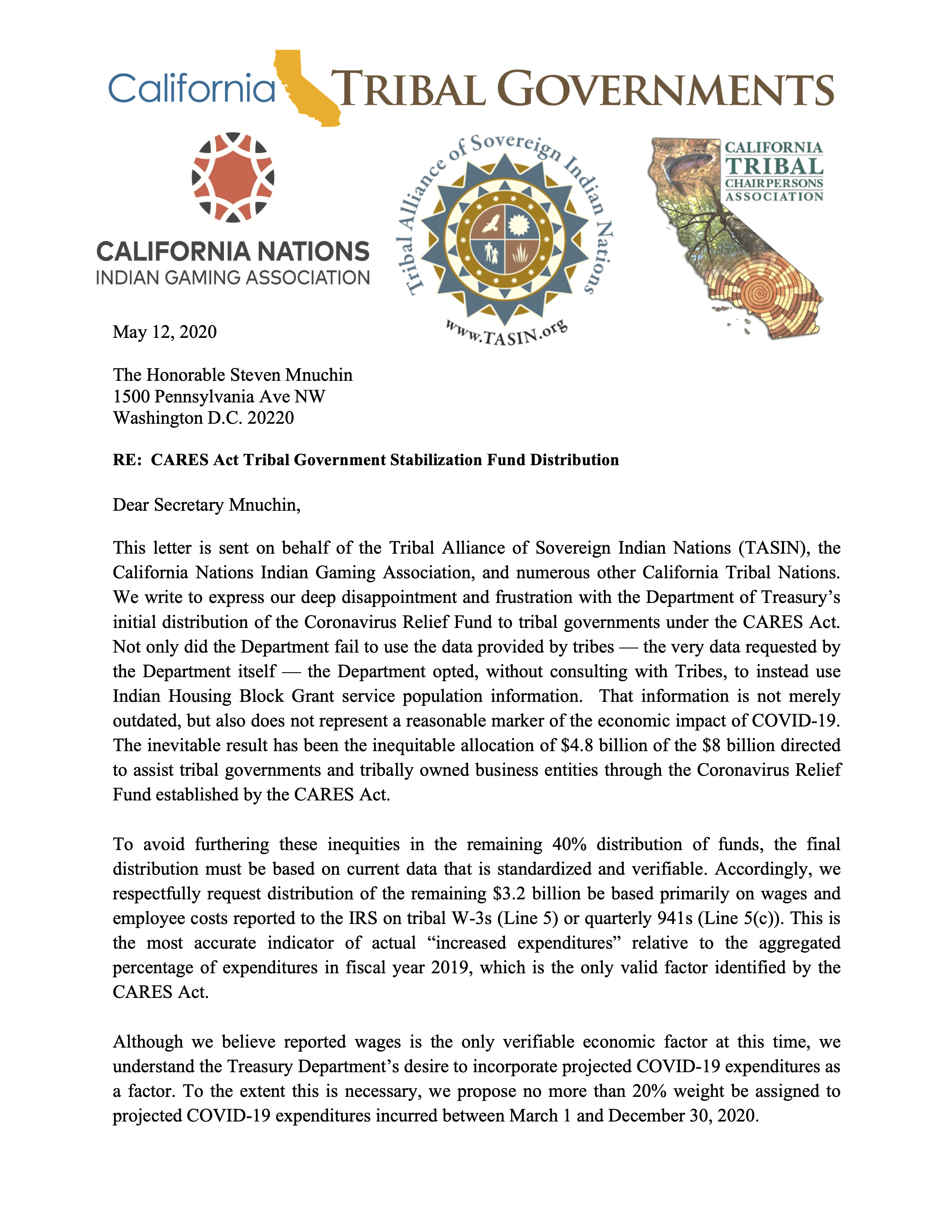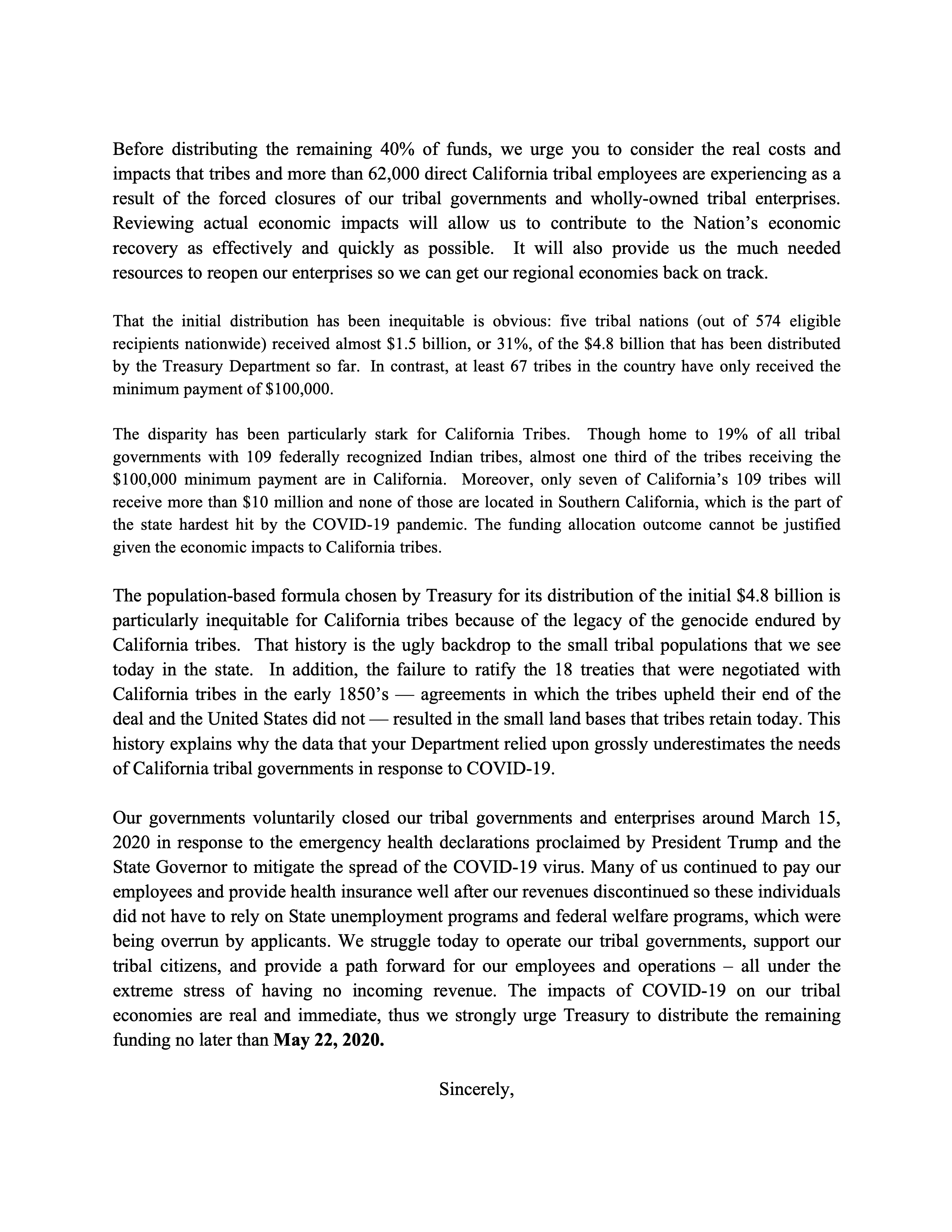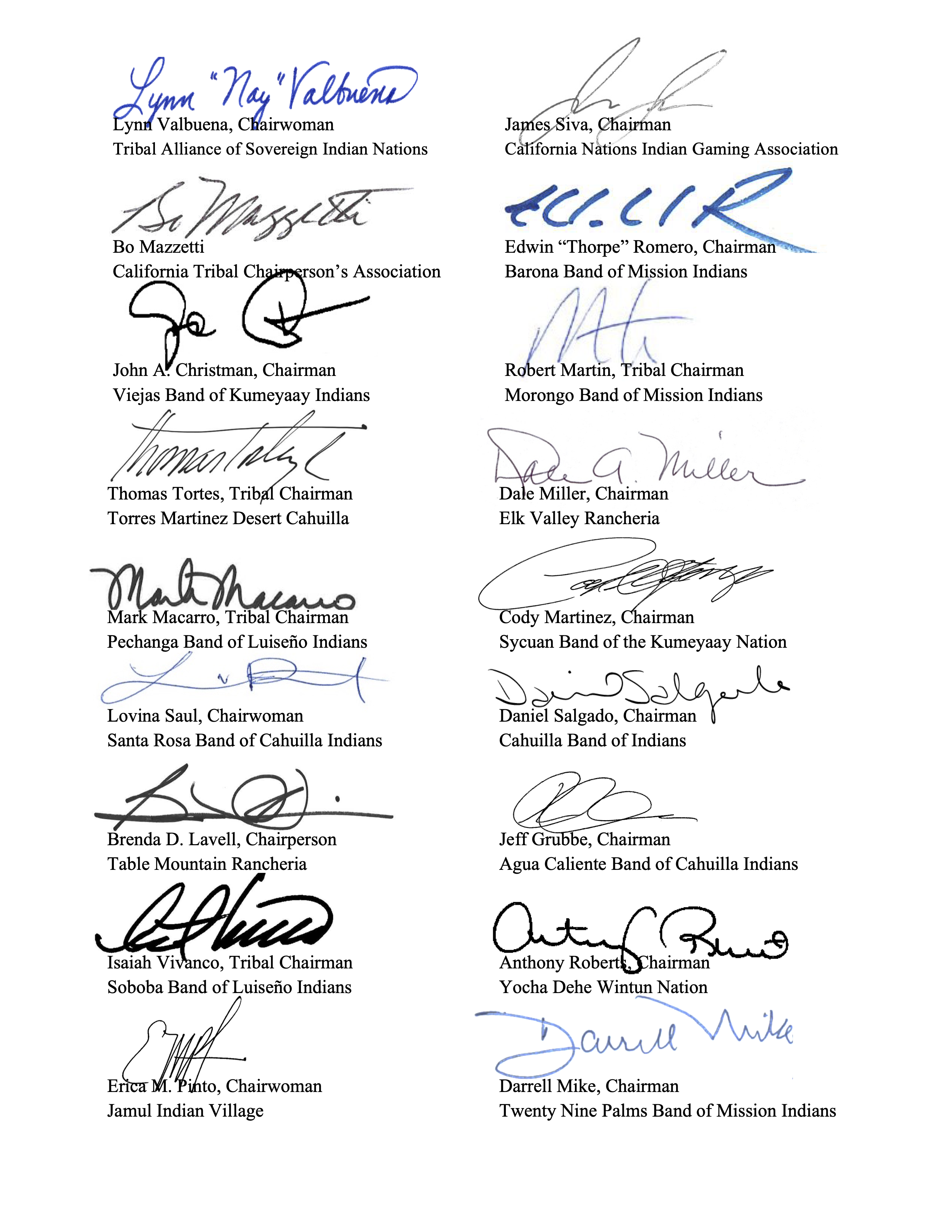A letter has been sent on behalf of every tribal government in California regarding the $8 billion coronavirus relief fund being distributed by the Trump administration under the CARES Act.
The four-page letter was sent to Secretary of the Treasury Steve Mnuchin on May 12, 2020. It was submitted by the Tribal Alliance of Sovereign Indian Nations and the California Nations Indian Gaming Association, as well as by leaders of every other tribe in California not represented by those two organizations.
“We write to express our deep disappointment and frustration with the Department of Treasury’s initial distribution of the Coronavirus Relief Fund to tribal governments under the CARES Act,” the tribes write.
The tribes point out that payments were based on data far different from the information they were asked to submit through the CARES Act portal run by Treasury. The decision to go with different criteria was announced without consultation or advance notice on May 5.
“Not only did the Department fail to use the data provided by tribes — the very data requested by the Department itself — the Department opted, without consulting with Tribes, to instead use Indian Housing Block Grant service population information,” the letter continues. “That information is not merely outdated, but also does not represent a reasonable marker of the economic impact of COVID-19.”
“The inevitable result has been the inequitable allocation of $4.8 billion of the $8 billion directed to assist tribal governments and tribally owned business entities through the Coronavirus Relief Fund established by the CARES Act,” the letter states.
California is home to the largest American Indian and Alaska Native population. But the tribes say Treasury’s reliance on Indian housing data has cut their people short in light of the genocidal actions taken by the U.S. and state governments.
“Though home to 19% of all tribal governments with 109 federally recognized Indian tribes, almost one third of the tribes receiving the $100,000 minimum payment are in California,” the letter states.
“Moreover, only seven of California’s 109 tribes will receive more than $10 million and none of those are located in Southern California, which is the part of the state hardest hit by the COVID-19 pandemic,” it continues.
“The funding allocation outcome cannot be justified given the economic impacts to California tribes,” the letter states.
“The population-based formula chosen by Treasury for its distribution of the initial $4.8 billion is particularly inequitable for California tribes because of the legacy of the genocide endured by California tribes,” the Indian nations write. “That history is the ugly backdrop to the small tribal populations that we see today in the state.”
“In addition, the failure to ratify the 18 treaties that were negotiated with California tribes in the early 1850’s — agreements in which the tribes upheld their end of the deal and the United States did not — resulted in the small land bases that tribes retain today,” the letter reads. “This history explains why the data that your Department relied upon grossly underestimates the needs of California tribal governments in response to COVID-19.”
With $3.2 billion still being withheld by the Trump administration, the tribes ask Secretary Mnuchin to come up with a distribution formula that takes into account wages and employee costs. Indian nations in California are some of the largest employers in the state.
The tribes also call on Mnuchin to distribute the remaining $3.2 billion no later than May 22. Treasury has not yet said when it will send out the money but a weeks-long process has been envisioned in order for the department to collect additional information.
“We struggle today to operate our tribal governments, support our tribal citizens, and provide a path forward for our employees and operations – all under the extreme stress of having no incoming revenue. The impacts of COVID-19 on our tribal economies are real and immediate,” the tribes write.




Tuba City Regional Health Care Corporation (Navajo Nation)
HHS Small Ambulatory Program Awards $55 Million to 15 Tribes and Tribal Organizations (Indian Health Service)
Indian Health Service Announces New Deputy Director for Quality Health Care and Enterprise Risk Management (Indian Health Service)
Federal Emergency Management Agency (FEMA)
White House Office of Management and Budget (Joe Biden Administration)
Tuba City Regional Health Care Corporation (Arizona, Navajo Nation)
Oklahoma City Indian Clinic (OKCIC)
Indian Health Service (Department of Health and Human Services)
Navajo Nation Town Hall (Arizona, New Mexico, Utah)
Navajo Nation (Arizona, New Mexico, Utah)
Tribal organizations statement on advance appropriations for Indian Health Service
Indian Health Service Statement on Advance Appropriations (Department of Health and Human Services)
Indian Health Service (Department of Health and Human Services)
Indian Health Service (Department of Health and Human Services)
